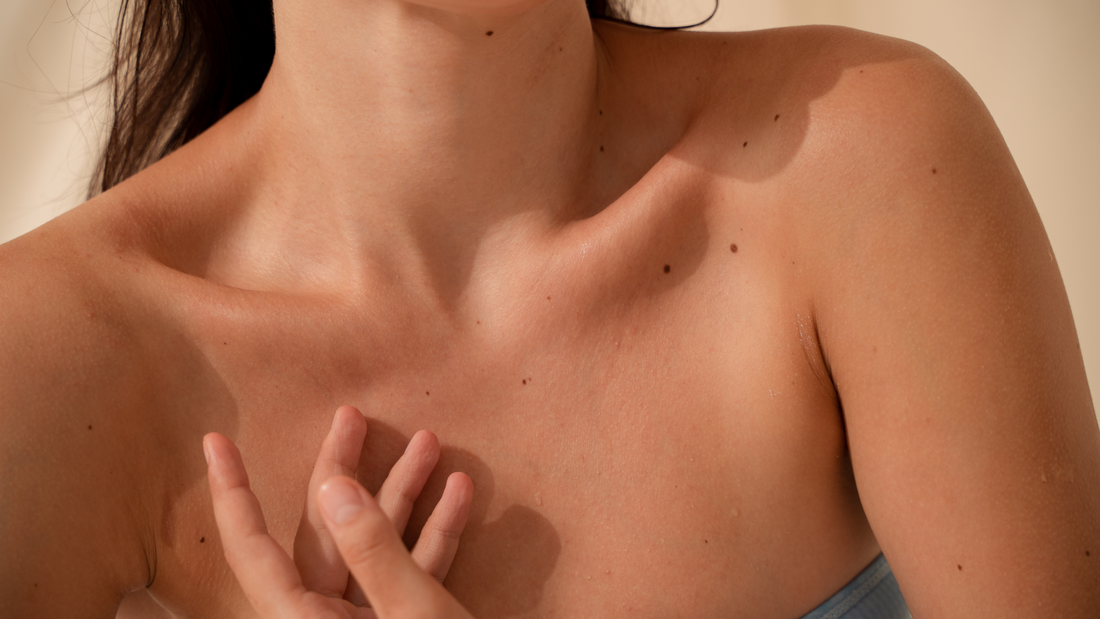
These nutrients help with skin conditions such as acne, eczema and psoriasis
Share
Our skin is our largest organ and requires many specific nutrients to function properly. When we suffer from skin conditions like acne, eczema, psoriasis, or rosacea , increasing our intake of certain nutrients can reduce symptoms and restore skin balance.
Vitamin C – for collagen and wound healing
Vitamin C is a powerful antioxidant that protects the skin from free radical and UV damage. It also stimulates collagen production , keeping skin firm and elastic. It also contributes to wound healing and can reduce hyperpigmentation.
Found in: citrus fruits, kiwi, bell peppers and broccoli.
Vitamin D – for eczema and psoriasis
Vitamin D is produced in the skin in response to sunlight and supports the skin's barrier function and cell growth . Low vitamin D levels are associated with skin conditions such as eczema and psoriasis. Supplementation can help alleviate dry, itchy skin conditions.
Found in: sunlight, oily fish and omega 3 .
Vitamin E – against dry skin and irritation
Vitamin E is a fat-soluble antioxidant that protects cells and has anti-inflammatory properties. Research shows that it can reduce symptoms such as dry skin and itching associated with eczema. It also protects the skin from sun damage.
Found in: nuts, seeds, avocado, green leafy vegetables and supplements .
Zinc – for acne and skin recovery
Zinc plays a role in wound healing, cell division, and immune function . It's also one of the most researched minerals for acne: zinc inhibits inflammation, reduces sebum production, and inhibits the growth of acne bacteria. A deficiency increases the risk of skin problems.
Found in: shellfish, red meat, beans and nuts.
Omega 3 fatty acids – anti-inflammatory for skin conditions
Omega-3 fatty acids (EPA and DHA) are known for their anti-inflammatory properties. They can alleviate symptoms of eczema, psoriasis, acne, and dry skin , and also support the heart and joints.
Found in: oily fish, linseed and chia seeds.
Probiotics – balance in the intestines, balance in the skin
Gut flora plays a key role in skin health. Probiotics help restore gut balance and prove beneficial for skin conditions like eczema, acne, and rosacea. Healthy gut flora reduces inflammation and supports calm skin.
Found in: kefir, sauerkraut, kimchi and probiotic supplements .
Collagen – firmness and elasticity
Collagen is the skin's main structural protein. From the age of 25, its production declines, which can lead to wrinkles and dry skin. Supplementation supports skin elasticity, hydration, and reduces fine lines.
Found in: bone broth, fish, and collagen supplements .
Biotin – vitamin B8 for skin barrier and sebum regulation
Biotin supports the skin barrier, sebum production, and cell growth . It can help with acne and eczema and contributes to healthy, radiant skin.
Found in: eggs, nuts, seeds, and whole grains.
MSM – for collagen and rosacea
MSM (sulfur) supports collagen production, has anti-inflammatory properties, and can reduce redness and irritation associated with rosacea. It also helps maintain skin firmness and elasticity.
Found in: supplements and in small amounts in fruits and vegetables.
Hyaluronic acid – hydration from within
Hyaluronic acid binds moisture and keeps the skin hydrated, supple, and firm. Clinical studies show that supplementation increases skin hydration, reduces wrinkles, and can even soften scars.
Conclusion
Healthy skin requires a healthy foundation: nutrition, sleep, exercise, and stress management. But by supplementing with the right nutrients—such as vitamins C, D, E, zinc, omega-3s, probiotics, and collagen —you can reduce skin conditions and contribute to healthy, radiant skin.
